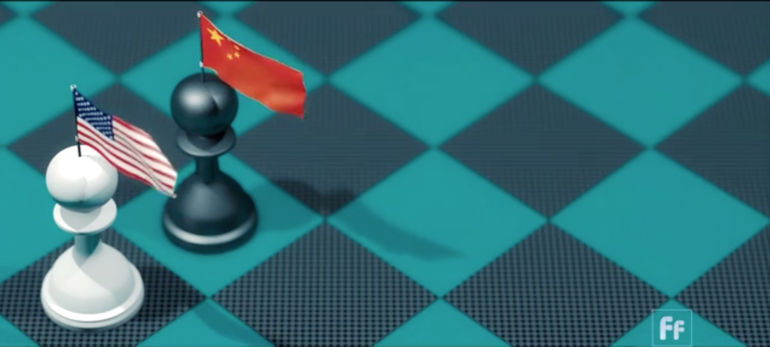From the global economy to climate change, the world’s future hinges on the relationship between China and the United States. Tensions between the two superpowers soared in 2020. Washington blamed Beijing for the coronavirus pandemic, and the two countries remained locked in a trade war.
This year ushered in a new U.S. administration and what some experts predict is a new strategy towards China.
Max Baucus served with President Joe Biden in the Senate and said Biden generally wants to work with others.
“[Biden] likes to find agreements. He likes to find so-called win-win solutions,” said Baucus, who also served as U.S. Ambassador to China under Barack Obama’s administration. “Biden’s not an ideologue. He’s not going to try to jam something down somebody else’s throat, whoever that person is. And that could be another member of the Senate or Congress…or another country, and includes China.”
ECONOMY
China is the United States’ third-largest trading partner. However, both sides have set 20 percent tariffs on goods coming in from the other country.
“I think that within the business community, there is a hope for greater predictability in the relationship going forward. Over the last four years with tariffs in place. It’s been difficult to make decisions, difficult to invest, difficult to travel back and forth,” said Craig Allen, president of the U.S.-China Business Council. The nonprofit represents about 200 American companies that do business with China.
Allen also noted that the rhetoric on China from the U.S. federal government is a contrast to what he hears from U.S. state governors, who recognize the large percentage of their exports going to China and wish to grow that percentage.
“I think that there is not a governor in the land, either in China or in the United States., that would be unhappy about additional job-creating employment opportunities in their province or in their state,” Allen said.
CORONAVIRUS
The Chinese and U-S governments have a long history of working together on public health crises, including SARS, H1N1 and the Ebola virus. However, the coronavirus pandemic stands out as “an exception rather than norm,” said Cheng Li, senior fellow at the Brookings Institution, a research group based in Washington, D.C.
Li said scientists and researchers from both countries have communicated with each other on prevention, vaccine development and treatment of COVID-19. However, the two governments can collaborate much more with each other.
“You can see that because of lack of cooperation, maybe that’s why we ended up like the current situation,” Li said. “But I think it’s never too late to return to the right track.”
CLIMATE CHANGE
The United States and China are the world’s biggest polluters. How they tackle climate change has long been in the global spotlight.
In China, climate change has worsened the country’s water scarcity problem. China makes up 20 percent of the world’s population, yet only has access to 7 percent of global water supplies.
Entrepreneur Kristian Li, must on China’s water quality in order for his business to succeed. Li is the owner of Jing-A Brewing Company, a craft beer brewery based in Beijing.
“We’re invited to festivals in Europe and the U.S. And a lot of customers ask, well, where’s the water from? Or, what’s the water situation? Is this clean water? Do you have clean water in Beijing?” Li said.
He said he’s hopeful that people’s impression around water in China will change.
“Over time… we don’t have to spend so much time trying to educate customers as to why our beer is at the same level as say another country,” Li said.
 CGTN America
CGTN America
